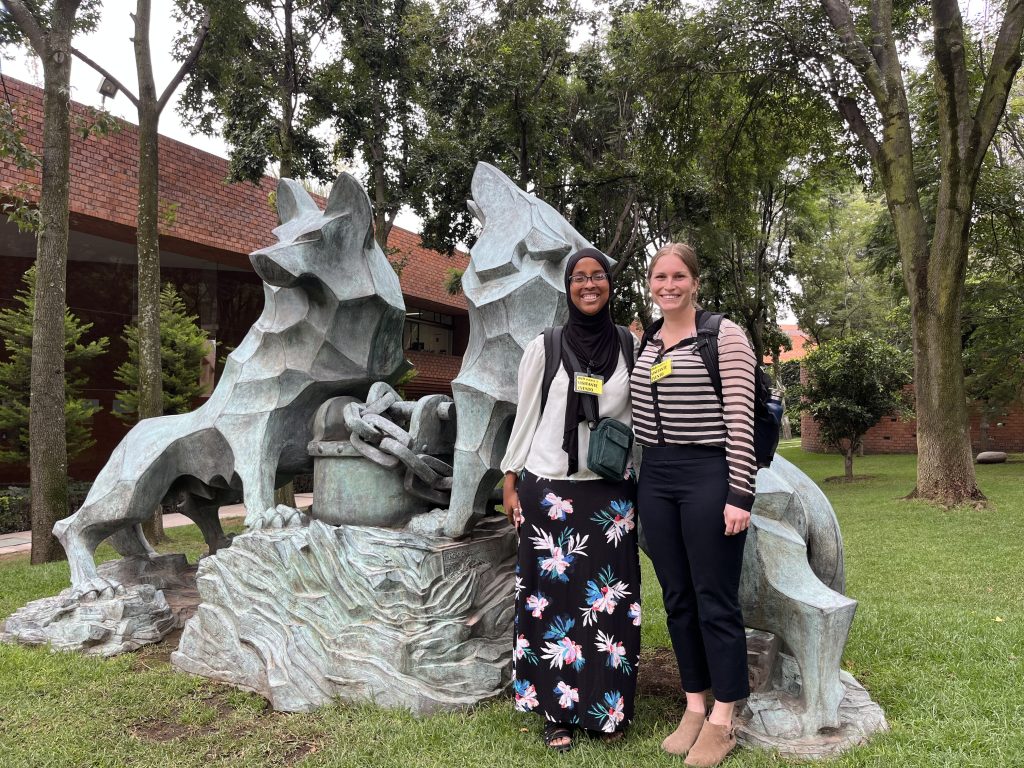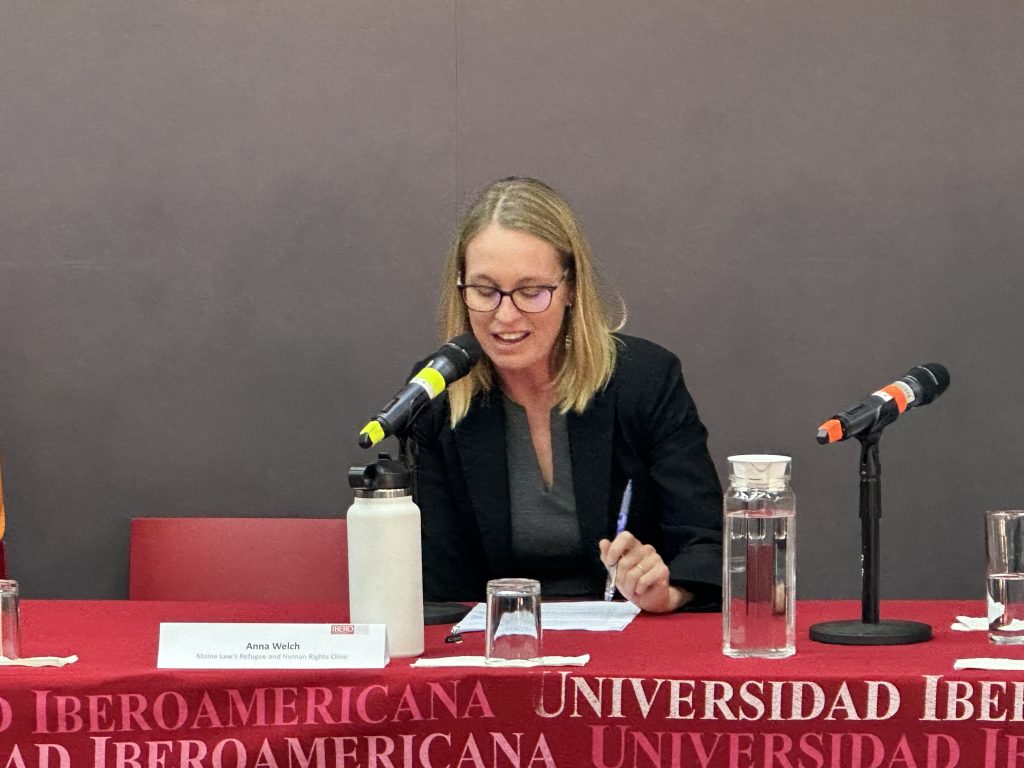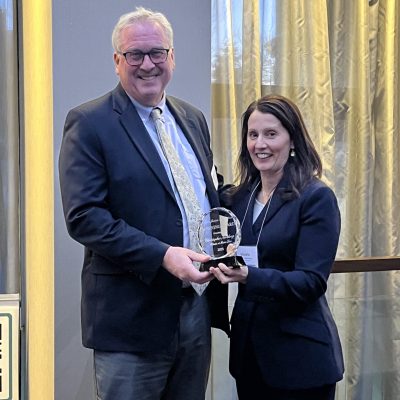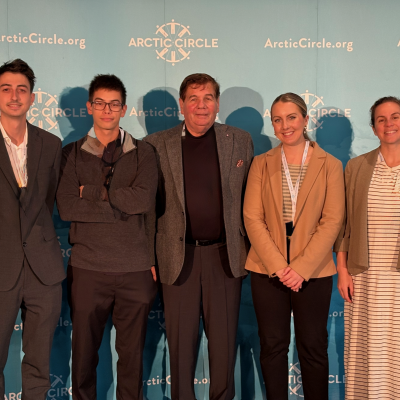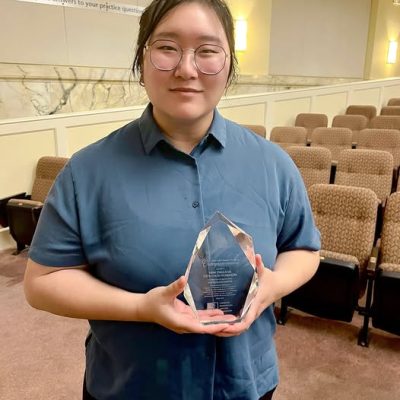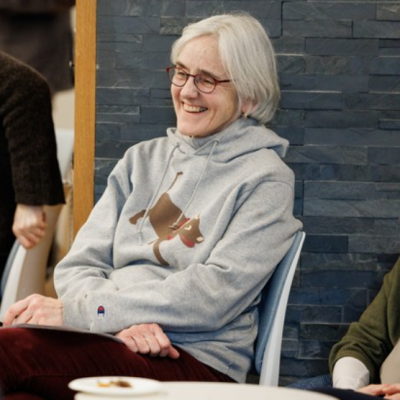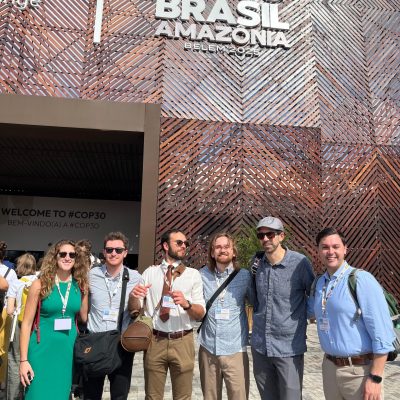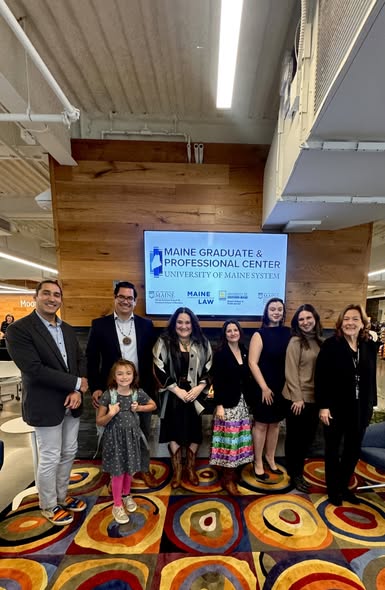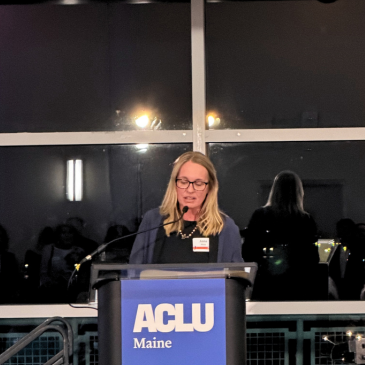In October, two third-year law students and student attorneys with Maine Law’s Refugee and Human Rights Clinic (RHRC), Sahra Hassan and Haley Brazier, took a week-long trip to Mexico City. They were accompanied by Maine Law Professor and Founding Director of the RHRC, Anna Welch.
The trip was the result of weeks of preparation alongside Mexico City’s Ibero-American University School of Law (IBERO) and law students at Washington and Lee (W&L) as part of an international cross-clinic pilot project to share accurate information about legal processes in the U.S. to asylum seekers in Mexico. For Hassan and Brazier, however, the trip also felt like the culmination of their law school careers.
“For me, this right here is why I came to Maine Law,” Hassan said. “This trip and this work made me really proud to be a student here.”
The work with IBERO and W&L clinical students and faculty entailed collaborating for weeks to compile documents for distribution to refugees in Mexico. The week-long trip to Mexico City allowed the partners to meet in person, hone their presentation of materials for asylum seekers, and deliver it to residents at Casa Tochan, a shelter for asylum seekers in Mexico.
“As someone interested in working on behalf of these populations, this trip was essential for me,” Brazier said. “I had these assumptions about what people’s priorities might be in their situation, but those assumptions weren’t always correct. In thinking about their next steps in the coming months, they’re envisioning the life they want in five or ten years.”
A secondary objective of the trip, Welch explained, was to build relationships between law school clinics. The clinic at IBERO is relatively young, compared to Maine Law’s Cumberland Legal Aid Clinic, of which the RHRC is a part. Prior to Hassan and Brazier’s arrival in Mexico City, Welch and Adjunct Professor Erica Schair-Cardona were part of a two-day conference hosted by the UN High Commissioner for Refugees and IBERO centered on sharing resources, engaging in conversation around clinical teaching and broader community outreach and advocacy, and collaborating across immigration clinics and borders.
The partnership with IBERO is a prime example of the exceptional clinical and experiential learning opportunities Maine Law offers, Welch added.
“I think we as immigration attorneys have an obligation to do work on both sides of the border,” Welch said. “We are always looking for new ways to help our clients and the reality is that many of our clients that end up in Maine at some point travel through Mexico. Many receive misinformation along the way that can have fatal consequences for asylum seekers’ immigration cases and potentially their lives.”
This is true even of clients from as far away as Africa.
“Not only is it important that we work as lawyers to get accurate information into asylum seekers’ hands even before they make the dangerous journey to the U.S., but it’s also critical for aspirational attorneys like me to understand the journeys my clients go through, at least to the best of my ability,” Hassan said. “I have a much better understanding of that process now.”
The visit to Mexico City was the first in a series of trips RHRC hopes to make. The clinic will send two more students next spring semester, all with the generous support of private donations. In the meantime, building off the work of Maine Law, IBERO and W&L students, other law schools from within Mexico and beyond plan to further this important work in Mexico.
“This is not a one-and-done project,” Welch added. “It can’t be. The situation is so fluid that we need to be constantly updating the information to give these individuals the best possible chance of success.”

